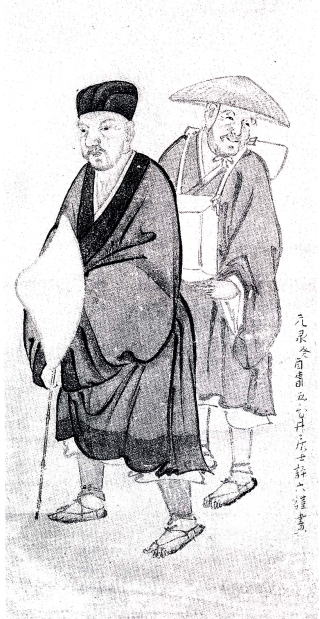Preface:
A haiku contains seventeen syllables broken into three lines of five,
seven and five syllables each. It is the shortest fixed poem form in
the world.
@A haiku also always includes a season word evoking a particular
moment in the cycle of the year as manifest in nature.
@Oku-no Hoso-michi is a journey documented in haiku that Basho
took with his traveling companion, Sora. Oku-no means gof the northh
or gbackh and hoso-michi means literally gnarrow roadh or gpath.
@ gNarrow Path through the Northern Regionh would be one translation
for Bashofs work.
@A deeper meaning of hoso is gnarrowh as in gwell-honedh or the
sharpness or keenness of our senses when they are alert as they
might be listening to the faraway sound of a flute.



@These qualities reflect Mauo Bashofs refined taste and poetic soul. Bashofs journey on foot was based
on the idea that a human life is a sort of journey.
@ Hence gA Poetic Journey Through the North
Countryh is also an apt title for Oku-no Hoso-Michi as Basho
named his collection in Japanese and the one we choose for our translation.
Oushukaido was a primary road from Edo to the north existing at the time of Bashofs journey.
May you enjoy Bashofs world of haiku and painting.
OKU-NO HOSO-MICHI by Matuo Basho(1644-1694)
A Poetic Journey Through the North Country
